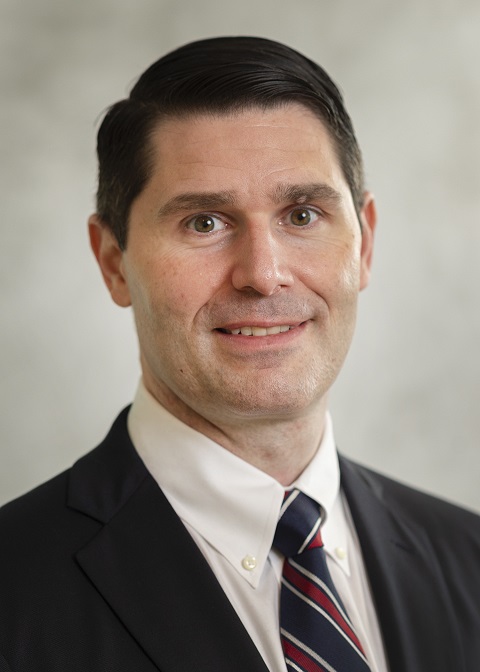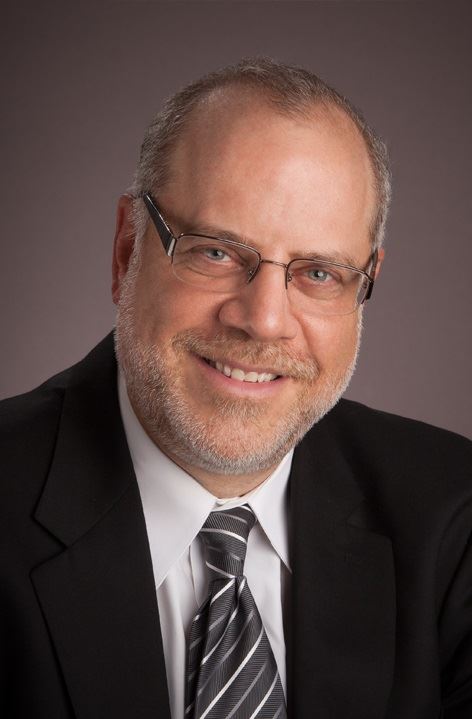“She’s a brave person ... to be open about her cancer to try and make a difference for other patients.”
Kathleen Grzyb, 56, a radiation therapist at the Radiation Oncology Practice at Jersey City Medical Center (JCMC), loves her job and her patients. “Some of them have become good friends,” she says.
She never expected to find herself receiving radiation treatment rather than administering it. But that’s what happened when she was diagnosed with anal cancer early in the COVID-19 pandemic.
“It was April of 2020, soon after the pandemic had started, when I began to have symptoms,” she says. “I thought it was just a hemorrhoid flaring up, but it didn’t go away.”
As she later learned, the symptoms of anal cancer— itching, burning and bleeding—can easily be mistaken for hemorrhoids or other benign conditions. Signs of anal cancer can also include narrow stools, a feeling of fullness, pain and discharge.
Though JCMC was open for business and Kathleen continued her work, many doctor offices were closed. When they opened up again in June, Kathleen made an appointment with a gastroenterologist.
“The gastroenterologist did an internal exam, which was very painful,” she says. “He told me I should have a colonoscopy since I was due for one any way. That’s when they found the cancer.”
Next came a battery of tests to stage the cancer and see if it had spread. Fortunately for Kathleen—and thanks to her diligence in seeking medical care during the pandemic, when many put it off—the cancer had been found early and was self-contained.
Multidisciplinary Care
Kathleen’s next move was to see Stefan Balan, MD, Director of Oncology at JCMC and a member of RWJBarnabas Health Medical Group, who recommended simultaneous radiation and chemotherapy.

“We radio-sensitize the tumor,” explains Dr. Balan. “In this type of case, the chemotherapy does a better job with the radiation than without it.”
Kathleen decided to stay at JCMC for treatment even though she knew that meant being vulnerable around her co-workers. “I didn’t shop around,” she says. “My colleagues are wonderful, and I wanted to be treated where I work.”
A team of experts participated in Kathleen’s treatment. Surgical oncologist Jason Maggi, MD, also a member of RWJBarnabas Health Medical Group, confirmed the diagnosis and placement of the tumor, and inserted the port that would be used to deliver the chemotherapy drugs. Alan Shaiman, MD, Medical Director of Radiation Oncology, supervised the radiation part of treatment.
Oncology nurse navigator Francine Raphael, RN, BSN, OCN, helped prepare Kathleen for each step of her care, making sure that she always understood what was happening and what the side effects might be. Kathleen also met with oncology social worker Kristy Case, BS, MSW, LCSW, OSW-C, and participated in a survivor support group.

“The nurses coordinated her schedule between infusion and radiation,” says Raphael. “It’s really a credit to the team that they were able to schedule treatments to allow her to keep working.”
A New Understanding
Kathleen was fortunate that she didn’t suffer severe side effects. The radiation caused some burning, which she treated with a cooling cream. She experienced some nausea and fatigue from the chemotherapy, “and a little bit of brain fog, too,” but none of it was enough to keep her from her job. In fact, the side effect that bothered her the most was the fact that about half of her hair fell out.
While Kathleen was always devoted to her job and the people she treated, she finds she has even more empathy now that she’s been through radiation therapy herself. “It’s a little different for me now,” she says. “I understand when patients tell me they’re so tired. And I can understand how lost they feel when they first come in.”
Kathleen marked October 1, 2020, in her calendar as the day when her treatments ended. She’ll be monitored closely for the next five years to make sure the cancer doesn’t return, but her prognosis is good.
“In oncology, the mind shies away from using the word ‘cure,’ but the heart doesn’t. I believe that she is cured,” says Dr. Balan. “She’s a brave person in the way she dealt with the disease and worked through it all, and now she’s using that same courage to be open about her cancer to try and make a difference for other patients.”
What Is Anal Cancer?
- Anal cancer grows in the anus, the opening at the lower end of the intestines that connects to the outside of the body.
- It’s a relatively rare cancer, more common in white women and African American men.
- The average age of diagnosis is in the early 60s.
- The biggest risk factor for the cancer is HPV (human papillomavirus), a common infection. “We say that 100 percent of people who are sexually active are exposed to this virus, but only some varieties of it are associated with anal cancer,” explains Stefan Balan, MD, Director of Oncology at JCMC.
- Because its location is easy to examine and because symptoms lead people to see a doctor, anal cancer is often found early. With early detection, survival rates are high.
To contact one of New Jersey’s best cancer specialists call 844-CANCERNJ or 844-226-2376.